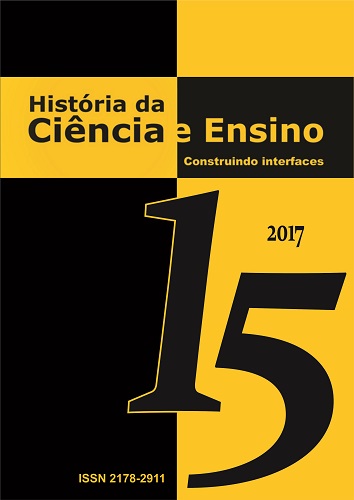História da eugenia e ensino de genética
DOI:
https://doi.org/10.23925/2178-2911.2017v15p63-80Resumen
Resumo
Eugenia pode ser definida como um movimento científico e social que foi iniciado por Francis Galton no final do século 19. Como ciência, seu foco era o estudo da herança biológica de características físicas e não físicas dos seres humanos. Sua má reputação vem, principalmente, dos movimentos sociais que se espalharam durante o século 20, especialmente o holocausto nazista. O ideário eugenista permanece vivo hoje em dia, especialmente devido à ideologia do determinismo biológico, que está presente nas modernas tecnologias relacionadas à reprodução humana, a chamada "reprogenética". Neste ensaio, a história da eugenia é discutida como uma possível ferramenta pedagógica para o ensino de biologia e, especialmente, da genética. A riqueza da história da eugenia oferece aos professores de biologia temas que podem ser usados em sala de aula para uma abordagem crítica do ensino da genética tais quais a relação entre ciência e sociedade, a natureza da ciência e implicações éticas e morais do trabalho científico.
Palavras-chave: Eugenia; História da Ciência; Ensino de Genética.
Abstract
Eugenics can be defined as a scientific and social movement that was initiated by Francis Galton in the late 19th century. As a science, its focus was the study of the biological inheritance of physical and non-physical characteristics of humans. Eugenics bad reputation came mainly from the social movements which became popular during the 20th century, and the Nazi holocaust was its worst episode. The eugenics ideology remains alive today, especially due to the ideology of biological determinism, which is present in modern technologies related to human reproduction, the so-called "reprogenetic". In this essay, the history of eugenics is discussed as a possible pedagogical tool for teaching biology and especially genetics. The interesting thing in using the history of eugenics in biology teaching is that it offers to the teacher topics that can be used in a critical manner in classroom specially in teaching of genetics, the relationship between science and society, the nature of science and the ethical and moral implications of scientific work.
Keywords: Eugenics, History of Science, Teaching of Genetics.


